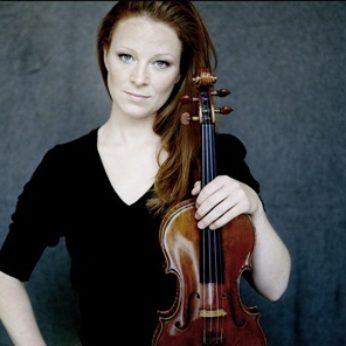Composer: Arnold Schönberg (b. 1874 - d. 1951)
Performance date: 04/07/2014
Venue: Bantry Library
Composition Year: 1899
Duration: 00:26:56
Recording Engineer: Richard McCullough, RTE
Instrumentation Category:Sextet
Instrumentation Other: 2vn, 2va, 2vc
Artists:
Andreas Brantelid -
[cello]
Alban Gerhardt -
[cello]
Lise Berthaud -
[viola]
Lawrence Power -
[viola]
Alina Ibragimova -
[violin]
Carolin Widmann -
[violin]

This moonlit late Romantic work was composed
in 1899, when Schoenberg was on holiday with Zemlinsky in the countryside
outside
At the same time he was passionately courting Zemlinsky’s sister Mathilde, who,
along with the p[oetry of Richard Dehmel, inspired this voluptuous music. It shows also Schoenberg’s debts to the
towering figures that preceded him: from Brahms came the tradition of the
string sextet and the clear motivic development; from Liszt the ideal of the
one movement symphonic poem; and from Wagner the use of chromaticism and
colour. Richard Strauss, his elder by ten years, had also written several of
his tone poems at this stage, so the idea of programmatic music was part of the
Zeitgeist, along with the exuberant romantic excess of both composers and
poets.
Richard Dehmel’s poem, Verklärte Nacht, with its idea of a love that transcends all
conventions, provided the
inspiration. It is written in five stanzas of unequal length. The first
describes two lovers walking on a moonlit winter night through a grove of
leafless oaks. In the second stanza the woman makes the anguished confession
that she is pregnant by another man, conceived before she met her present
lover. She had been desperate to have a child and the other man was only a
stranger to her. And now life is taking revenge with her discovery of her true
love. The third stanza is another moonlit interlude during which her lover
waits his turn to speak. The fourth stanza is his absolution of her guilt and
insistence that their love for each other will transfigure the child and make
it belong to both of them. The final stanza sees them walk on through the high,
bright night, arms around each other.
This idealistic tale is followed in the
music. The opening bars create the atmosphere for a magical transformation and
the evocation of the full moon riding high on a crystal clear winter’s night is
of a beauty not normally associated with this composer. However this is
savagely interrupted by the woman’s human, all-too-human tale, told with a
passionate development of the musical material. The third section returns to
the immensity of night, before the fourth section launches the rapturous
concept of transfiguration through love, and in so doing, throws new light on
the themes from the second part. The finale returns to the peacefulness of the
moonlit night, though the sky, the moon, the bare trees and the lovers
themselves are now all shimmering with the glow of transfiguration.
Although this music was inspired by Matthilde
Zemlinsky, whom Schönberg married in 1901, the dreadful irony is that Schönberg
failed to live up to the high ideals of Dehmel’s poem and when Matthilde was
unfaithful, he never forgave her.
Copyright © 2025 West Cork Music. All rights reserved.
Designed and developed by Matrix Internet